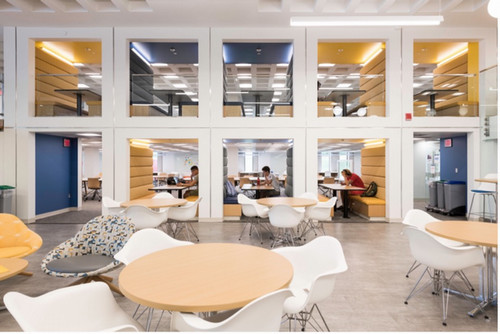Graduate Ambassador Blog Posts
Day in the Life of a PhD Student + Time Management Tips

Hi, I’m Isabelle! I’m a third-year PhD student in the biomedical engineering program co-advised by Dr. James McGrath and Dr. Hani Awad.
My research is focused on developing a tissue-on-a-chip device to understand tendon fibrosis and screen potential therapeutics. If you’re a prospective grad student wondering what life is really like as a PhD student or you’re a current grad student curious about what other students’ schedules look like, you’ve come to the right place! I’ll give you a look into the types of things that usually fill up my day as well as some time management tips that I have found useful. It’s important to prioritize self-care and personal goals as well, and time management is key to balancing work and life commitments.
Typical Schedule
What I’ve found most rewarding about grad school is the opportunity to gain diverse skills - from data collection, analysis, writing, reading, mentoring, and planning - it’s fair to say that you wear many hats as a grad student. My schedule is built around these various roles and tasks. Since I completed my coursework and TA requirements throughout my first two years, my schedule is fairly flexible. Below is an example of a busy week where I’ve included some of my other involvements, including serving on the E-Board of SACNAS (Society for the Advancement of Chicanos/Hispanics and Native Americans in Science) and participating in STEM outreach at a local high school. Note that these are not weekly occurrences and are often monthly events. I’ve highlighted the events based on category.
I like to leave my Fridays open so that I can slot in different tasks that I didn’t finish earlier in the week. I am currently mentoring an undergraduate student in the lab who is working on an independent project. I meet with her at the beginning of the week to provide any support or answer questions. Since I am co-advised, I attend a decent number of meetings: I meet 1-on-1 with each of my advisors weekly, attend lab meeting for one of the labs, and attend a larger meeting with collaborators involved in the project. While these meetings can sometimes be difficult to work around, they keep me accountable for documenting my work and also allow me to improve my presentation skills. I am required to attend department research seminars which often happen weekly. Outside of these set commitments, I plan out when my lab work needs to get done based on the estimated time for experiments. I like to reserve time in the mornings for any reading on relevant literature and data analysis, as I find it easier to focus on these tasks earlier in the day. Keep in mind that not everything will go according to plan, as research is very unpredictable. So, I also leave buffer room in my schedule if experiments take longer than expected and take a mid-day break.
I’ve also learned that the balance of bench work (if your research involves this) and computer work/writing will fluctuate. For example, I recently took one month off from bench work experiments to focus on literature review and writing for my qualifying exam. I knew I would be too overwhelmed if I tried to balance experiments and exam preparation, so it was worth taking this time off from the lab.

Vacation
In terms of vacation, the standard vacation time allotted to grad students is 2 weeks. However, it is important to speak with your advisor, ideally early on in your PhD, to understand their expectations related to time off. Some advisors are more relaxed with this time frame while others are strict on the 2-week policy. In my experience, taking long weekends away has helped tremendously when I need a mental break from my research. Also having a trip planned in the future is great motivation!
Boundaries
Having a good grasp on your working hours and current commitments is important especially when boundaries that you have set for yourself and with others come into question. For example, if your advisor is assigning more workload, you can evaluate your current bandwidth and have an honest conversation about how that extra work might affect your current project and commitments.
Time Management Tips
Time blocking and using Google Calendar have been the most effective tools in managing my time. These systems have evolved and it’s important to find something that works best for you. I find I am most productive when I establish a weekly plan either at the end of the day on Friday of the previous week or Sunday. This decreases the stress around planning on Monday mornings and allows me to get a jumpstart on the week. I also like to define the three most important tasks that I need to get done each day so I stay focused but am not overwhelmed by a long to-do list. There will always be a growing to-do list, but prioritizing what needs to get done will save you from burnout. Overall, the flexibility of grad school enables you to define your schedule so make sure to save time for yourself, this will only help your research!
